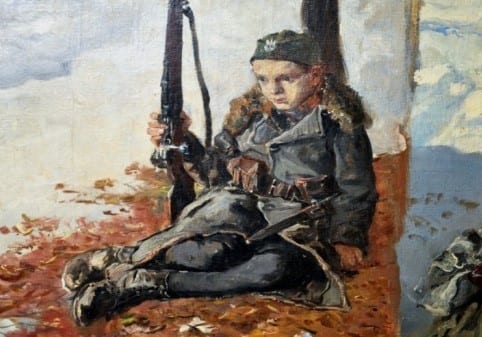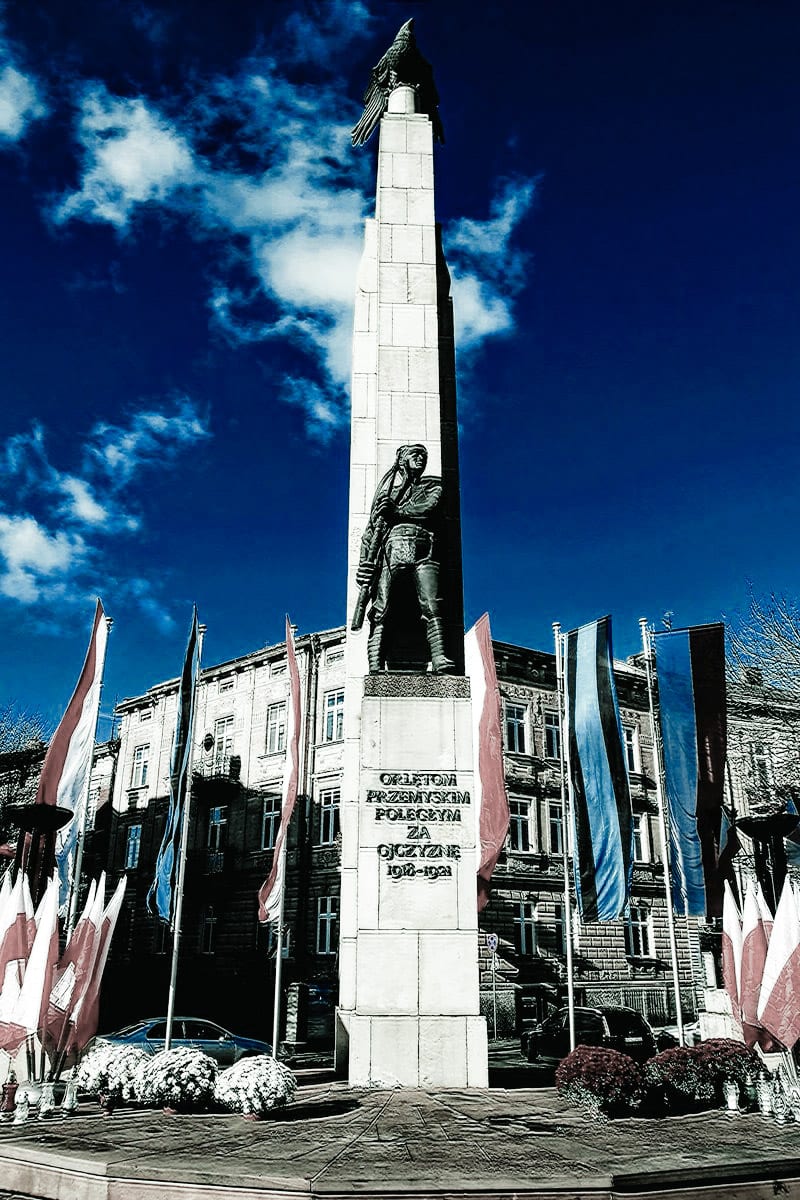Youth is the future and great hope of Poland. In the past young Poles proved it many times with their knowledge, hard work, willingness to change, but also with their sacrifice and fight against the enemy. Such was the case in 1918 in Lvov, when the city was liberated by the Eaglets. To this day, the Eaglets of Lwow are a symbol of great love for the homeland and readiness for supreme sacrifice. In 1918, when Ukraine planned to incorporate Lviv into its territory, in defiance of the historic Polish character of the city, the students took up arms and were later called the 'Eaglets of Lviv'. On November 1, 1918 an uprising broke out in the home town of Aleksander Fredro, Jan Długosz and Tadeusz Bor-Komorowski. It was not until several days later that the Polish army, reinforced among others by the Przemysl Eaglets, arrived to relieve the city. Historians believe that it lasted until 22 November. More than six thousand Poles took part in the three-week fighting. Almost half were young people, and the youngest participant in the fighting was nine years old. More than four hundred people died, including almost two hundred pupils and students. The bodies of the dead were laid to rest at the Cemetery of the Defenders of Lwow in 1922. This uprising of young Poles was not isolated. Less known but extremely dramatic and moving is the story of the Defenders of Przemysl. Simultaneously with fighting for Lvov there were also armed clashes for Przemysl in which students took up arms, often paying the highest price of their lives for the freedom of their homeland.
"On the 100th anniversary of Poland's regaining independence, the Sejm of the Republic of Poland pays tribute to the steadfast defenders of Lviv who fought for a reborn Homeland," states a resolution commemorating the 100th anniversary of the defense of Lviv, which the Sejm adopted by acclamation on Friday. The document reminds that 100 years have passed since the heroic, victorious fight of the Polish defenders of Lviv, who wanted the city to return to the reborn Polish Republic.
"We especially remember the minor defenders, called in our tradition the Eaglets of Lwow, who in the first period of fighting made a significant contribution to keeping the city in Polish hands despite the overwhelming superiority of the enemy. A memento of those events is the cemetery of the Defenders of Lwów, which to this day is a symbol of sacrifice at the altar of the Homeland and occupies an important place in the Polish historical tradition," - it was emphasized. The resolution also emphasizes the importance of good Polish-Ukrainian relations for peace and security in Europe.
A fragment of the painting "Eaglets of Lwów" by Stanisław Kaczor Batowski from 1936
Monument to the Eaglets of Przemyśl




